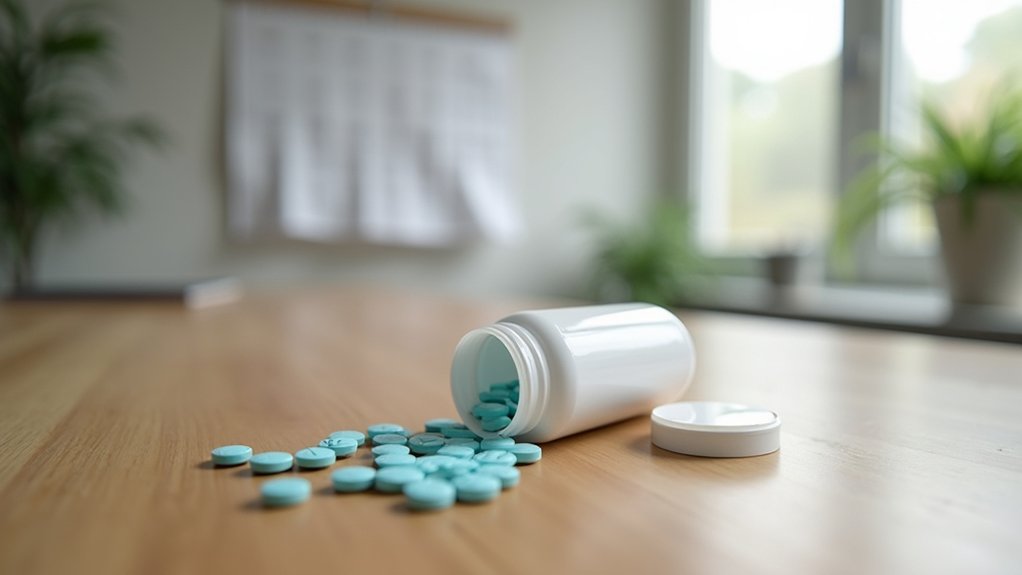Accountability in Recovery: Why It’s Important to Have Support
Struggling with substance abuse is a lonely place to be. Yet, the right support team of doctors and friends in recovery can help you achieve sustainable sobriety. Most notably, it’s how therapists and loved ones utilize accountability in recovery that makes all the difference in the world. Consult the following information to better understand accountability’s vital role in recovery and the importance of having a support team. You’ll also learn how to spot the signs of someone who needs rehab and recovery support.
What Accountability Methods Can You Expect in Recovery?
Accountability in recovery, though similar to other forms of accountability, requires a unique and closely monitored approach. Accountability in conjunction with high-quality addiction therapy in California puts you in the best position to succeed. The following details outline how accountability works in rehab.
Unparalleled Support Groups
You can’t have accountability in recovery without strong support groups. Our compassionate physicians and goal-driven individuals are the greatest family support team you could ask for. Whether it’s individual, group, or family therapy, you’ll be given all the support tools to succeed in recovery and beyond. One call to our caring receptionist team will put you at immediate ease that you’ve made the right choice.
Having One or More Accountability Partners
Accountability is not just about having support within the parameters of treatment or dual diagnosis program. Accountability in recovery is about having people you can turn to in your darkest hour whenever you need them. That’s where the importance of having an accountability partner comes into play. When you’re at your weakest point, it helps to have someone to reach out to. When cravings, temptations, or life trials occur, your accountability partner is there to help you through.
Mental Training Techniques
Doctors can help you thrive in accountability-based treatment by teaching you vital self-sustainable training techniques. These medically-established techniques are designed to reinforce your mental fortitude against addiction cravings and impulses. In addition, these mental training sessions help you to utilize accountability methods on impulse to replace those former bad habits.
Honesty-Building Treatment
Open-ended honesty is the only way doctors can pave an efficient personalized recovery path. Unfortunately, the toll drugs take on your mental stability also adversely affects your personality traits. This can cause people battling substance abuse to develop bad habits of impulsive dishonesty. This impulse, in turn, could hinder the outcome of your treatment. Medically-aided treatment can help you build an honest rapport with doctors you can trust and depend on. This important bond of trust is the gateway to a permanent recovery.
Habit Replacement
A part of being accountable for your sobriety means replacing bad habits with positive activities. Therapists help you replace these former habits by instituting activities you enjoy based on your likes. This process of habit replacement is one of the most enjoyable phases of substance rehab.
Why is Accountability in Recovery Important?
Having an accountability structure in place improves treatment efficacy and helps you thrive in rehab. That’s just a prime example of why accountability is the most important aspect of recovery. Here are just a few ways accountability plays a vital role in your recovery journey.
Relationship and Friendship Building
The most important influence for and against substance abuse comes down to the friends and influences in your life. Most individuals who battle addiction continually fall back because of the wrong friendly influences. Medically aided rehabilitation helps you replace those wrong influences with the strong bonds you form in recovery. Whether it be from individual or group therapy, the people you meet could end up being the greatest friends you’ll ever have in life.
Accountability Establishes Circumstantial Awareness
This means that doctor-patient accountability training shows you how much your circumstances impact relapse potential. Put simply, any places, people, or situations that feed your cravings or desire for substance use are things that should be avoided, if possible. For example, somebody who struggles with alcohol addiction would be better off avoiding bars altogether if they lack impulse restriction. By changing the places you go and the people you befriend, you can place yourself in a better situation to avoid reverting to old habits.
It Establishes Open-Ended Honesty
Accountability doesn’t work without openly honest communication. Complete transparency about the state, depth, and specifics of your struggle is how people achieve permanent sobriety. We understand these traits of honesty take therapeutic development. That’s why doctors teach you and encourage you to be completely open about your addiction struggles without judgment. Most importantly, our team specializes in making you feel comfortable about sharing everything about your substance struggles in complete confidence. You’ll have the confidence you’ve always wanted to help ease the burden of addiction from your shoulders.
Accountability Helps You Focus on the Ultimate Goal
Having methods of accountability helps you continually refocus your mind on the hows and whys of sobriety. That way, when cravings to indulge arise, you can refocus your thoughts on why you entered rehab in the first place. In turn, accountability helps you focus on how to progress in your recovery journey. This helps you focus determinedly on the ultimate goal of achieving a sober life.
Accountability Drives Away the Loneliness of Battling Addiction
This means that doctor-patient accountability training shows you how much your circumstances impact relapse potential. Put simply, any places, people, or situations that feed your cravings or desire for substance use are things that should be avoided, if possible. For example, somebody who struggles with alcohol addiction would be better off avoiding bars altogether if they lack impulse restriction. By changing the places you go and the people you befriend, you can place yourself in a better situation to avoid reverting to old habits.
Self-Confidence Building
The overwhelming majority of patients who enter addiction treatment have very low confidence in achieving sobriety. Accountability reinforces the self-confidence necessary to rise above your substance struggles. Your treatment, support team, and friends made in recovery provide the building blocks for self-confidence to thrive at every stage of recovery.
Accountability-based Treatment Helps You Acknowledge Your Condition
Accountability in multiple ways perpetually helps you acknowledge the state of your condition and the dire need for change. One of the primary reasons people refuse to receive help is an utter denial of the state of their addiction. Acknowledging one’s condition is always the first vital step to achieving permanent sobriety.
How Can You Show Your Support for Accountability in Recovery?

Accountability takes more than one person to have a good accountability system. Doctors train family members and friends how to show support for a loved one in need of accountability-based treatment. The following are the most proactive ways to show your support for accountability measures.
Be a Sponsor
Patients are presented with a list of sponsors who have been through similar struggles with substance abuse. If you have a family history of substance abuse, you can register to be an accountability sponsor for a person who needs help. Your testimony and sympathetic understanding could be the third-party support somebody needs to make a breakthrough. Speak to a representative now to learn more about how you can volunteer to be a sponsor.
Attend Community Support Groups
Depending on the individual, a loved one may be more receptive to attending community programs in your company. Even if a loved one isn’t involved, attending to show your support can instill confidence in someone to be bold against their strongholds. Your support to attend on their behalf or another may be the encouragement one needs to make a change.
Be On-Call for A Struggling Loved One
The most caring way to show your accountability support is to let your loved one know they can contact you anytime. Opening yourself up to be a help will help them grow more comfortable being honest with you and themselves about their battle. Sometimes all it takes is a family member or friend to take the initiative to care enough to invest their time into their recovery.
Celebrate Progress
When you notice any progress in someone battling addiction, praise them and celebrate any small victories. Rewarding positive behavior with supportive praise or other rewarding methods encourages others to move forward in their recovery. This progress can be anything from the simple expressed desire to seek treatment to the bigger latter steps of recovery. Regardless of which stage an individual is at in their recovery, never stop rewarding recovery progress.
Stage an Intervention
Family interventions should be reserved as one of the last resort options when most options have been exercised. This type of treatment is adopted when the addicted party becomes a threat to their life or others. In such cases, an intervention could be the accountability support your loved one needs to put their battle in perspective. You can enlighten someone about the true nature of their struggle and how it affects the ones they love most.
Immersive Recovery Can Keep You Accountable
There are no better resources for accountability than the top-quality tools offered you at Immersive Recovery. You’ll have the collective support from caring physicians you can trust and the potentially lifelong friends you meet in recovery. Most importantly, doctors help you incorporate your family and loved ones into the accountability system for well-rounded support. Couple this support with unparalleled treatment resources and high efficacy methods and you have the best care you could get. Reach out today to get the treatment, support, and accountability you’ve always wanted to achieve a happier life.





